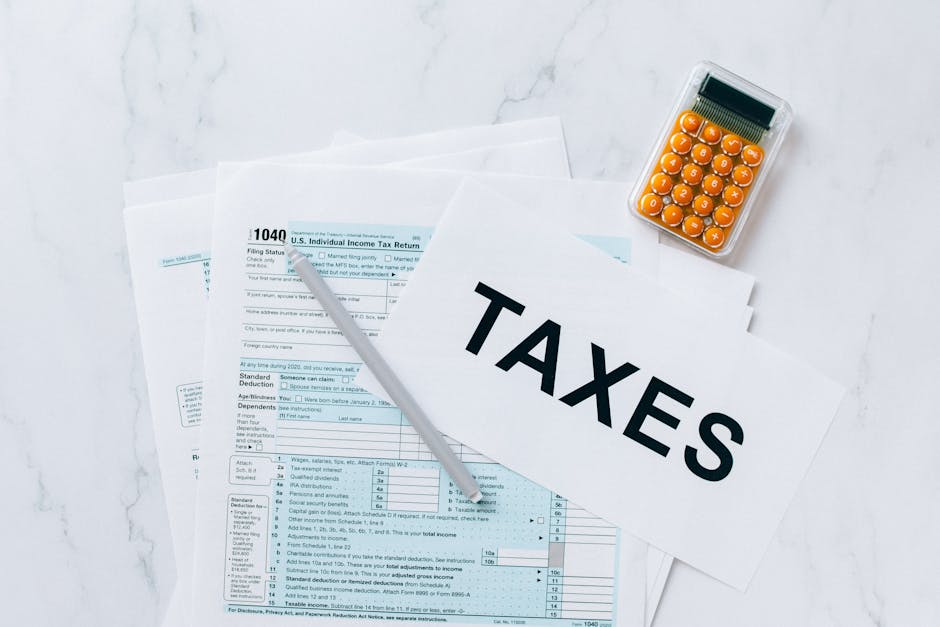Basics of tax filing for small businesses
If you own a small business, understanding the basics of tax filing is crucial. Here are some key points to keep in mind:
- Small businesses are responsible for filing their taxes accurately and on time to comply with regulations.
- Business structure determines how your business is taxed. Common structures include sole proprietorships, partnerships, and corporations.
- Income tax is a tax on your business’s profits. You must report your income and expenses to determine your taxable income.
- Deductions are expenses that reduce your taxable income. Common deductions include business expenses, employee wages, and equipment purchases.
- Tax credits are incentives provided by the government to encourage certain behaviors, such as hiring veterans or investing in renewable energy.
- Quarterly estimated taxes may be required for small businesses to pay taxes throughout the year based on their expected income.
- Hiring a tax professional can help ensure your tax filing is accurate and minimize the risk of errors or audits.
Common tax deductions for small businesses
You can deduct various business expenses when filing taxes, which can help lower your taxable income. Some common tax deductions for small businesses include:
- Business expenses: Costs directly related to running your business such as supplies, equipment, and marketing.
- Home office deduction: If you work from home, you may be able to deduct a portion of your rent or mortgage, utilities, and other expenses.
- Vehicle expenses: If you use your vehicle for business purposes, you can deduct mileage, maintenance, and other related costs.
- Employee wages and benefits: The salaries, wages, and benefits you provide to your employees are typically tax-deductible.
- Travel expenses: Costs incurred while traveling for business purposes, including transportation, lodging, and meals.
- Professional services: Fees paid to accountants, lawyers, and other professionals for business-related services.
- Health insurance premiums: Small business owners can often deduct the cost of health insurance premiums for themselves, their spouses, and dependents.
Understanding different types of business taxes
Different types of business taxes can include self-employment tax, income tax, and employment taxes. Self-employment tax covers Social Security and Medicare taxes for individuals who work for themselves, while income tax is based on the profits your business earns. Employment taxes involve Social Security and Medicare taxes from both the employer and employee. Each tax type has different rules and requirements, so it’s essential to comprehend how they apply to your small business to ensure compliance with the law.
Tax deadlines and extensions
Tax deadlines are crucial for small business owners to avoid penalties. The deadline for filing federal taxes for small businesses is usually April 15th. If you need more time, you can request an extension that gives you an extra six months to file your taxes, moving the deadline to October 15th. Keep in mind that while an extension gives you more time to file your taxes, it does not extend the deadline for paying any taxes owed. To avoid late payment penalties, estimate your tax liability and pay as much as you can by the original deadline.
Small business tax credits
Tax credits are beneficial for small business owners because they can help reduce the amount of taxes owed to the government. As a small business owner, you may be eligible for various tax credits that can lower your tax bill. Some common small business tax credits include the Small Business Health Care Tax Credit and the Research and Development Tax Credit. These credits can help offset costs related to employee healthcare and innovation activities. Make sure to explore the available tax credits for small businesses to maximize your savings during tax filing season.
Recordkeeping and documentation requirements
Keeping good records is crucial for your small business. When it comes to taxes, the IRS requires you to keep accurate records that support the income, deductions, and credits you report on your tax return. Here’s what you need to know:
- Documentation: You must keep receipts, invoices, bank statements, and any other financial documents that support your business transactions.
- Record Retention: The IRS recommends keeping records for at least three years from the date you filed your original return or two years from the date you paid the tax, whichever is later.
- Types of Records: Your records should include income, expenses, assets, liabilities, and supporting documents for any deductions or credits claimed.
Maintaining organized records will not only help you during tax time but also in running your business efficiently.
Utilizing tax professionals for assistance
Tax professionals can be valuable for small business owners when it comes to understanding complex tax regulations and maximizing deductions. They can help ensure that your tax filings are accurate and compliant with current laws, potentially saving you time and money in the long run. Some benefits of utilizing tax professionals include:
- Expertise in navigating tax laws and regulations to optimize deductions.
- Assistance in minimizing tax liabilities and avoiding potential audits.
- Guidance on structuring your business in a tax-efficient manner.
- Support in preparing and filing tax returns accurately and on time.
By working with tax professionals, small business owners can have peace of mind knowing that their tax obligations are being taken care of efficiently and effectively.
Tax implications of different business structures
Different business structures, such as sole proprietorships, partnerships, and corporations, have varying tax implications. Here’s a quick breakdown:
- Sole Proprietorship:
- You report business income and expenses on your personal tax return.
- You are responsible for self-employment tax.
- Partnerships:
- Profits and losses are passed through to partners who report them on their individual tax returns.
- Each partner pays self-employment tax on their share of profits.
- Corporations:
- Corporations are taxed as separate entities.
- Shareholders pay taxes on dividends received from the business.
Understanding these differences can help you choose a structure that fits your business and tax needs.
Tax planning strategies for small business owners
Tax planning is crucial for small business owners to maximize their savings and minimize tax liabilities. Some effective strategies for tax planning include:
- Keep accurate records: Maintaining organized financial records throughout the year can simplify tax filing and help identify potential deductions.
- Take advantage of deductions: Small business owners can benefit from deductions such as home office expenses, mileage, and business-related purchases.
- Consider retirement plans: Contributing to retirement accounts like a SEP IRA or Solo 401(k) can lower taxable income and build savings for the future.
- Hire a professional: Consulting with a tax professional or accountant can ensure that you are taking advantage of all available tax-saving opportunities and staying compliant with tax laws.
- Plan for estimated taxes: Small business owners are generally required to make estimated tax payments throughout the year. Calculating and setting aside funds for these payments can help avoid penalties and surprises at tax time.
IRS audits and compliance for small businesses
The IRS can audit small businesses to ensure they comply with tax laws. Being compliant means following all tax regulations to avoid penalties. It’s crucial for small business owners to keep accurate and organized financial records, as audits can be stressful and time-consuming. If audited, the IRS will examine your business records to verify your reported income and deductions. To stay compliant, file your taxes on time and seek professional help if needed.


Leave a Reply